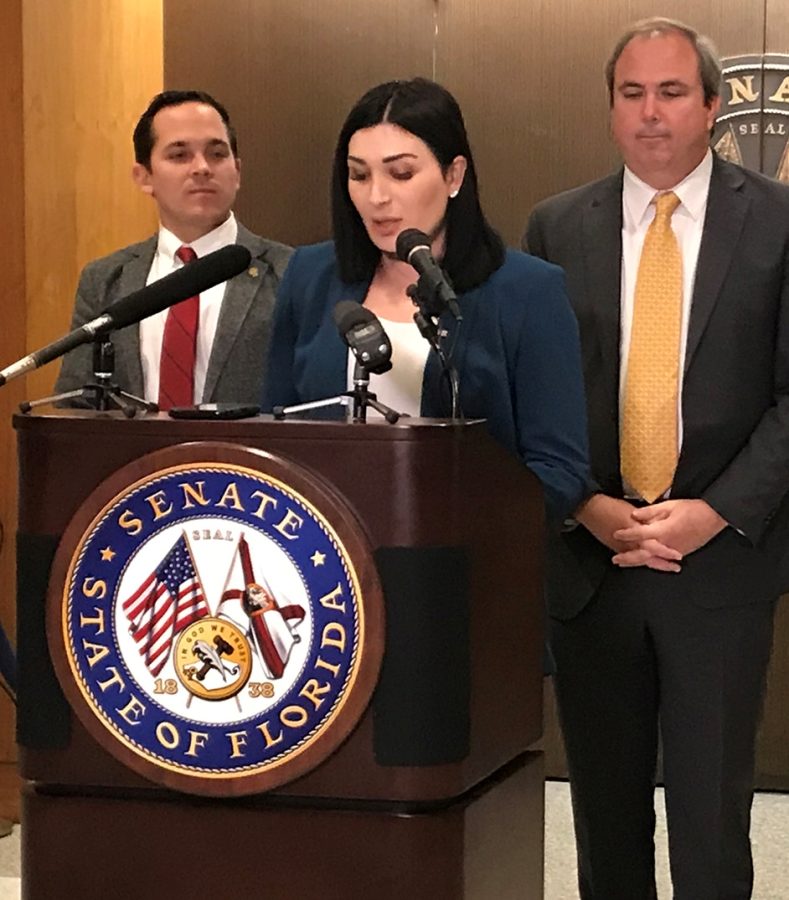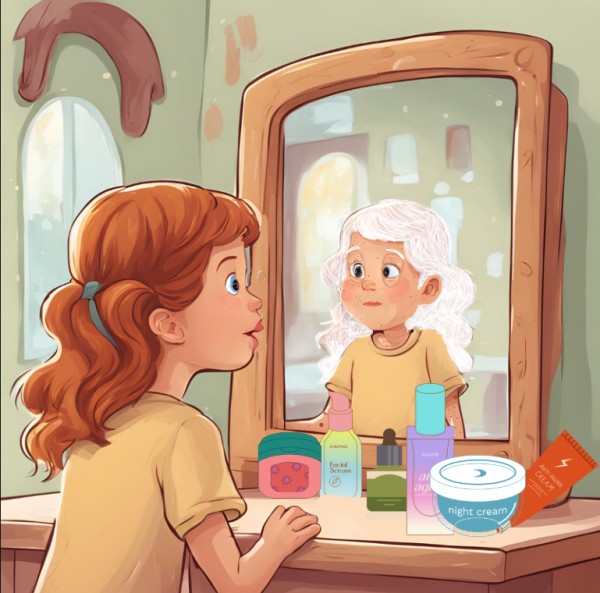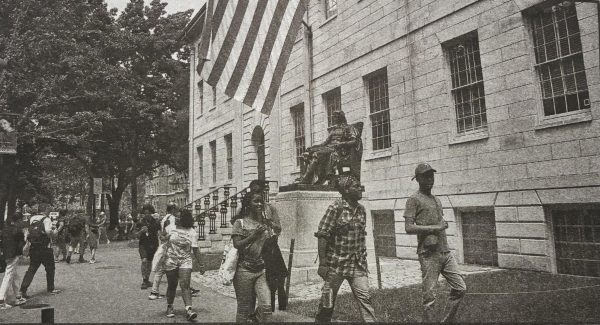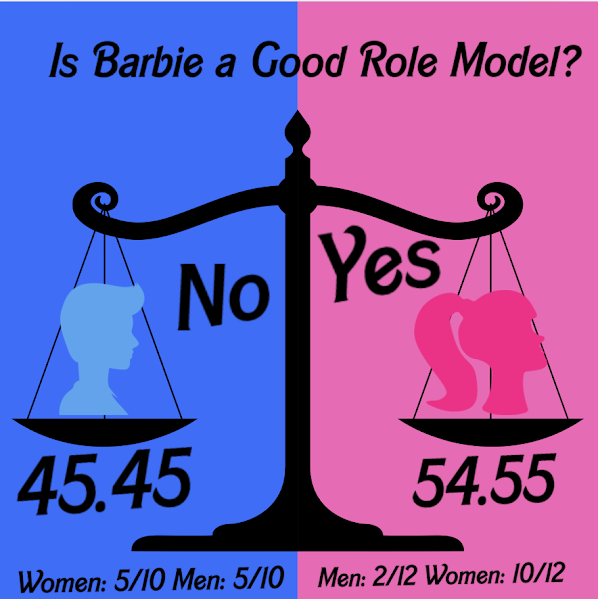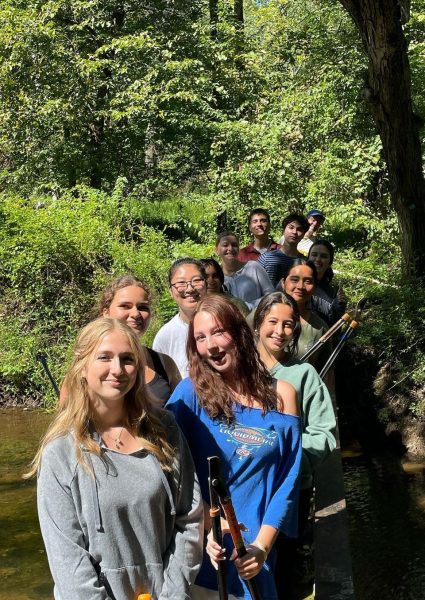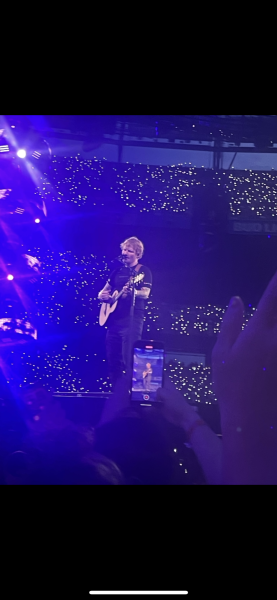Dangers Lurk When Media Censors
Flanked by two Florida state legislators, political activist Laura Loomer speaks in Tallahassee, Fla., about a bill seeking to stop social media censorship.
Throughout America, debates have unfolded over whether or not social media should have the ability to censor people’s views. While some may argue that censorship can be beneficial to society, limitations on personal beliefs should not be permitted in any way, and no one should be afraid to speak their minds.
Many social media and search engine apps, such as Google, Twitter and Facebook, are guilty of limiting users’ abilities to express their opinions.
Injection of political bias in big-tech media companies has become the norm in American society. Back in 2021, during the fall election, President Donald J. Trump was permanently suspended from Twitter. The company claimed its move was designed to protect people from “risk of further incitement of violence.”
Many people were appalled by the company’s choice to ban the President of the United States, as well as other conservative-leaning users, and claimed it was based solely on the fact that the banned users were Republicans and their opinions did not align with the “woke” left’s views. Right-leaning opinions, such as anti-affirmative-action and anti-abortion stances, tend to earn more backlash.
Right-leaning ideas have been censored on liberal-owned applications. A more recent victim of this censorship is Rep. Vicky Hartzler, a Republican Senate candidate from Missouri. She was suspended from Twitter in February after tweeting about her opinions on transgender women in sports.
Everyone has their own opinions, and the ability to express them should not be taken away simply because someone more powerful does not agree with them.
The First Amendment of the Constitution of the United States of America protects all of our freedoms, including freedom of speech. Any media outlet, like apps, networks or newspapers, should not have the right to censor or prohibit someone’s personal beliefs, unless they are dangerous to society in some way.
The question that often comes up: What qualifies as something that should be censored? According to Oklahoma State University, a public land-grant research university, censorship is the “official prohibition or restriction of any type of expression believed to threaten the political, social or moral order.” This includes specific threatening acts or dangerous acts, like yelling “fire” in a building that is not on fire. Someone expressing a personal opinion, even if it is hateful or mean, is not acting unconstitutionally and should not be censored.
Most often, people calling for censorship of another’s viewpoint are unable to demonstrate that the material actually poses a danger to society. Everyone has a personal belief about what is right or wrong. What one person may think is hateful may be completely different from what another person thinks is hateful. The fear that someone’s feelings could be hurt should not be a viable argument as to why someone’s beliefs cannot be shared.
The media have completely gone against what America stands for. By censoring and limiting what others are able to post and say, they are getting rid of people’s abilities to share their own opinions. By doing so, the media are creating the kind of society that is incapable of exercising individual thought.
In the end, this situation will only hinder one’s ability to differentiate between independence of thought and subservience.

